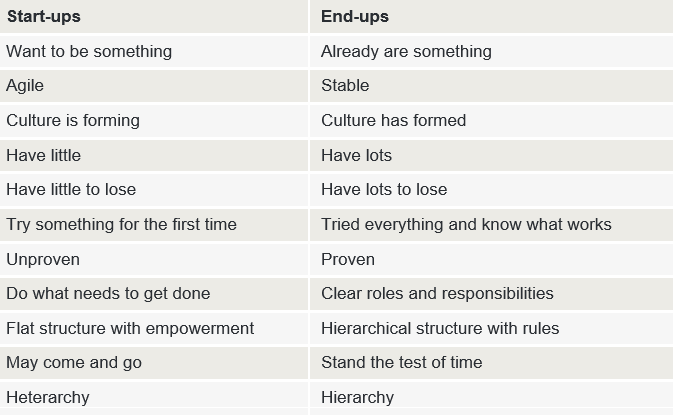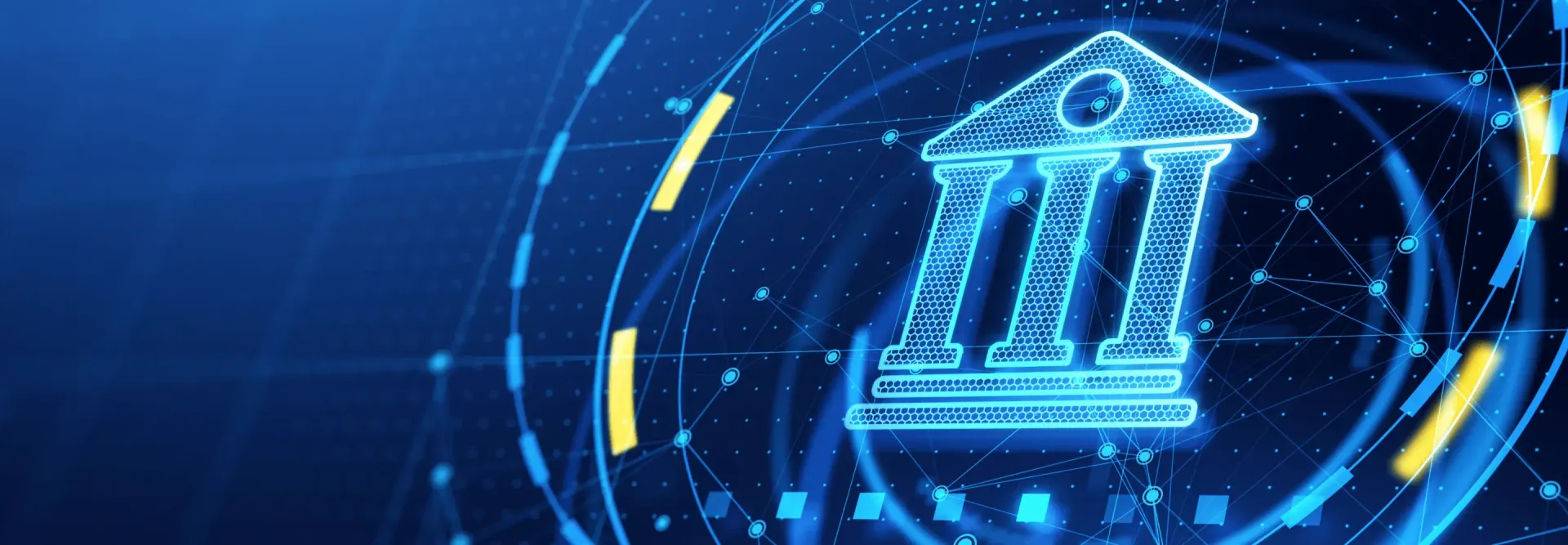Innovation in end-ups and start-ups, a unique ecosystem
Alessio De Filippis • 7 September 2020
There are still many differences between end-ups and start-ups:

(John Maeda)
The challenge for both is to seek greatness by learning from each other.
According to the Wall Street Journal, large consumer companies are investing lots of million in venture fund to help finance start-ups. The main motive is that growth is increasingly hard to come by, so they are looking to entrepreneurs to help them find it.
For example, over the last four years, the entire U.S. grocery store’s entire food and beverage category grew just 2.3% a year. The largest 25 food and beverage companies contributed only 0.1% of that annual growth rate. The growth came from 20,000 small companies outside of the top 100, which together saw revenue grow by $17 billion dollars.
So, as already said, start-ups and established companies would both improve their success rates if they collaborated instead of competed: start-ups excel at giving birth to successful proof of concepts; larger companies are much better at successfully scaling proof of concepts.
Some big companies are restructuring
their organization to manage the trade-off between startup and established companies approach and to manage new business (e.g. Google restructuration to become Alphabet).
A new theory, based on a research at Bain & Company
and developed by Chris Zook, affirms that, even if conventional wisdom says that start-ups are better at launching and growing a new business than large companies, established companies that follow three main principles (pursue businesses that protect and defend the core, establish a repeatable formula and look for a founder’s mentality) are ideal places to found a new business. In fact, they are much more likely than a start-up to produce profitable growth.
The research shows that large companies that leverage the strengths of their strong core business have on average about a 1-in-8 chance of creating a viable, large scale new business: you can benefit from a strong existing business and the scale advantages of an established company. We may be seeing the rise of a new type of multi-business company: those that use their advantages of scale to start or acquire smaller businesses, grow them in size and perhaps even spin them off again.
Success path seem to lay in the dialogue between the two worlds, bridging the distance between the two ecosystem will be a key success factor in next years.
Read more:
- Bain &Company: The strategic principles of repeatability
- Harvard Business Review: Big companies should collaborate with startups
- John Maeda: Startups are great, but we can learn a lot from “end-ups,” too
- Harvard Business Review: When Large Companies Are Better at Entrepreneurship than StartupsThere are still many differences between end-ups and start-ups
by Alessio De Filippis, Founder and Cheif Executive Officer @ Libentium.
Founder and Partner of Libentium, developing projects mainly focused on Marketing and Sales innovations for different type of organizations (Multinationals, SMEs, - Start-ups).
Cross-industry experience: Media, TLC, Oil & Gas, Leisure & Travel, Biotech, ICT.











